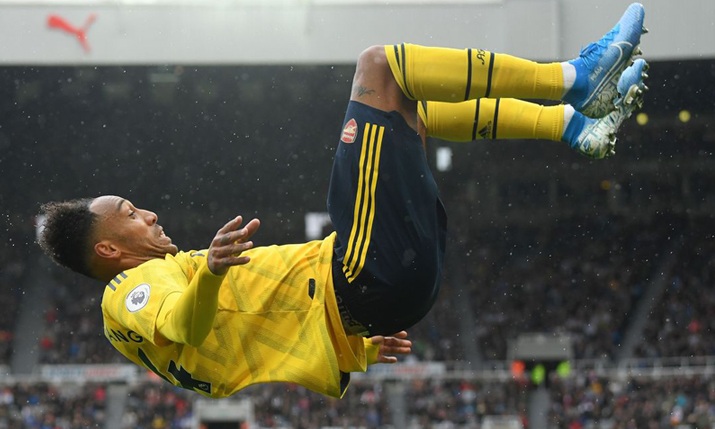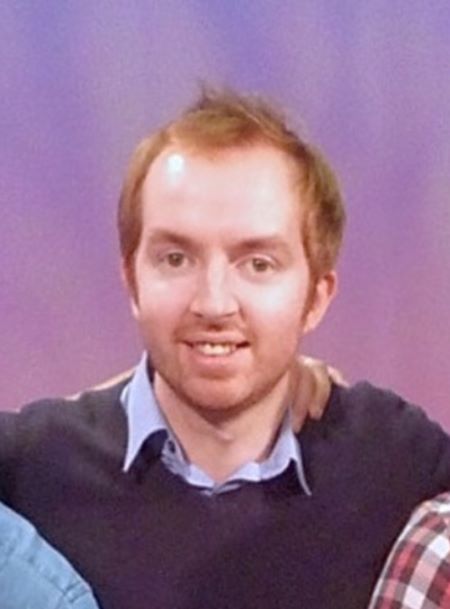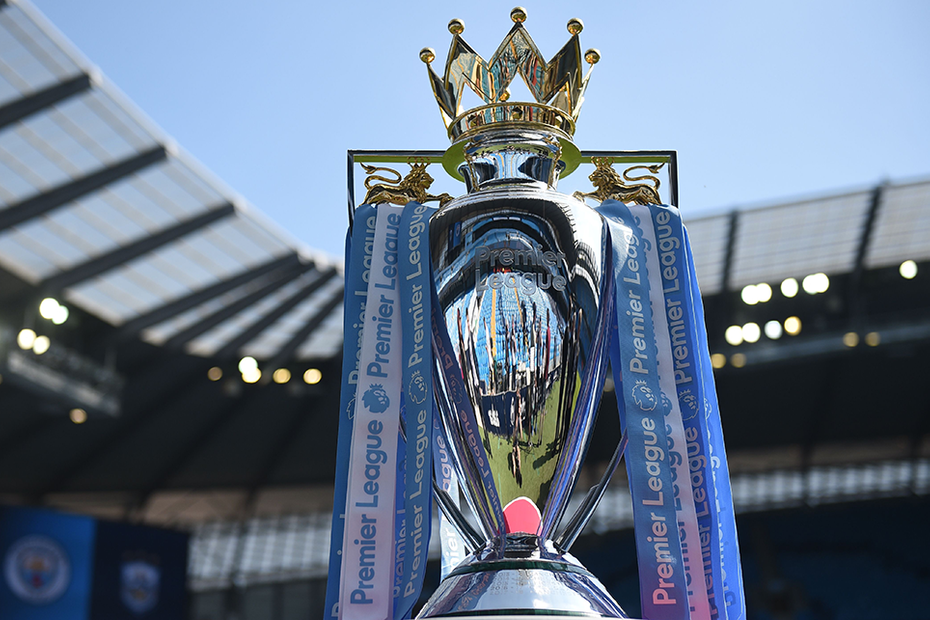Inside Premier League re-start: Sky Sports Football senior director Laurence Cawsey talks overcoming hurdles

Arsenal’s Pierre-Emerick Aubameyang acrobatically celebrates putting Arsenal 1-0 up against Newcastle at St James’ Park on 11 August 2019 in a Premier League match
Wednesday 17 June 2020 marks the return of Premier League football in the UK, and the first two matches, a doubleheader of Aston Villa v Sheffield United followed by Manchester City vs Arsenal, will be shown by Sky Sports with the latter directed and produced – for the first time – fully remotely from Sky Studios.
SVG Europe caught up with Sky Sports Football senior director Laurence Cawsey, who helped plan the remote production for both games and will be directing City against Arsenal, about what went into making this production a reality.
Cawsey will be speaking about his first-hand experience of this production at SVG Europe’s Football Summit 2020 on Thursday 18 June – To find out more visit: Football Summit 2020
How have you helped to plan the production for the matches on 17 June, and others?
Over the last few weeks, I’ve probably spoken to Emma Bayliss (Sky’s senior production manager for Premier League,) more than anyone else in my life. There’s been a tremendous amount to think about from a health and safety and planning perspective on site.
As well as being involved in those aspects, I’ve also been involved in a working group at Sky around how we deliver both games from a technical perspective. On Wednesday, the Aston Villa match will be using a truck solution for match coverage with a remote replay facility, whereas the Manchester City game will be fully remote out of Sky Studios. Presentation is on site for these games, but all remoted from Sky.
What was the overall goal for this, and the obstacles, requirements and restrictions in place that needed to be worked around?
The overall goal from Sky’s perspective is people’s safety. Normally, the Premier League works on a model where we have large OB trucks and production personnel travelling all over the country from a game to game basis, and we had to reduce that.
We had many obstacles to overcome, most notably the amount of people allowed to work in a gallery space at any one time.

Lawrence Cawsey, Sky Sports Football senior director
What was the process in planning this out?
Sky’s leadership team was presented with multiple options around delivering this. Various options were considered, including using multiple trucks, and people working from home.
The decision made to adapt our model of delivering the English Football League (EFL) to the Premier League was chosen, based on how successful the EFL project had been.
Once that decision was made, a working group was set up to delve into and solve the finer details about how we would deliver the games to people’s screens. There has been a tremendous collaborative effort over the last month across departments in Sky, to get this ready in time.
What did you as director add to the proceedings, from your area of expertise?
There were many hurdles to overcome, especially with the volume of games which Sky will be producing, and the amount of viewing options we are looking to implement for our customers. To put it into context, Sky normally delivers 128 live Premier League games over the course of a season, the challenge was to deliver 64 (half that amount) in a 40 day period.
In my role, I’ve been involved across a wide variety of things. Due to the complexity of the technical set up, we’ve tried to reduce the risk of technical errors by standardising aspects of our camera plans for every Premier League ground for example.
I’ve worked on the working practices around us doing back-to-back games out of Sky which is fairly complex, and something which we haven’t done before.
It’s also been vitally important to think about everyone’s role on the team, how their roles will be impacted by new safety measures, and help make sure each person has what they need to perform at their jobs.
What were the challenges in making it work and how did you overcome these, for yourself and the team working on this?
Two of the major challenges we faced were around how we deliver back to back games and triple headers. In this instance we have built two match-cut booths, and also have the option of using a truck onsite with a remote replay facility to reduce the number of people needing to travel.
The other major challenge was around how we keep the quality of our coverage to the highest level we aspire to, whilst maintaining health and safety protocols.
We are going to be using less technical staff than normal, so have used studio space to allow us to maximise the number of people working, whilst keeping up social distancing.
The 17th will mark the first time a Premier League game has been directed from Sky Studios. What are you going to be working with at the studio?
Health and safety has been at the forefront of every decision that Sky has made over the last couple of months. We have transformed studio floor space to enable safe working environments for our staff. We have made two match-cut booths, which have their own monitor stacks and mixing desk, and have a vision mixer sitting two metres behind us to fire off replays. We’ve built a large VT area which feeds into both match cut areas, along with additional sound mixing booths too. These are all then connected into our traditional gallery, which will run all the presentation aspects for our Premier League shows.
How will this differ technically from working on the grounds?
A lot of hard work went into the EFL set-up a year ago and making the director feel comfortable. Therefore technically, nothing is different from a directing perspective. It’s quite amazing actually.
What do you think it will feel like for you as a director to be working from Sky Studios for the first time?
Luckily, I’ve had the experience of working remotely on the EFL for the last year, so many aspects won’t be much of an alien experience. The biggest challenge for a director is not being at the ground, so you try your best not to lose your feel for the occasion by not being there.
We are used to walking around the ground and looking at camera positions, along with having face to face conversations and talking things through with cameras, commentators etc, so you have to work around that.
The technical team at Sky are outstanding, and I know they will deliver on that front, so the real challenge for me will be making sure that the event, and the occasion, are covered correctly.
 Almost everyone working on the crew has to adapt to a new way of working. For example, floor managers who we rely on so heavily to be our eyes and ears pitchside, are now restricted on where they can go, so that will be challenging. Interviews need to be shot differently, teams walking out will be different to name a couple more.
Almost everyone working on the crew has to adapt to a new way of working. For example, floor managers who we rely on so heavily to be our eyes and ears pitchside, are now restricted on where they can go, so that will be challenging. Interviews need to be shot differently, teams walking out will be different to name a couple more.
Having watched a lot of German football over the last few weeks, the thing that sticks in my mind is how goal celebrations are different now, as obviously players aren’t running towards their fans anymore. Naturally, because of this, there seems to be less emotion in their faces when they score, along with celebrations being shorter, so as directors we need to adapt to that.
How do you think this way of directing might change the way Sky Sports approaches match directing in the future? Does this mark a new era?
In terms of the match coverage, it’s difficult to predict without experiencing it if I’m honest. Four months ago, nobody would have predicted a world now where Microsoft Teams and Zoom meetings are now the norm, so who’s to say we won’t find new ways of covering football during the next few months.
Sky has a company-wide commitment to go net-zero Carbon by 2030; I’d imagine that remote production will play a big part in our sustainability model.
Are you excited about working this way?
Yes, very much so. It’s great to have football back. The last Premier League match was Leicester v Aston Villa on 9 March, and it seems a long time ago that I was sitting directing that game.
I’m excited about what Wednesday night will bring. The technical team at Sky have been unbelievable in getting this ready in a short space of time; they’ve basically ripped up how we have covered Premier League football for the last 28 years and started again.
I just hope I can do the game justice after all their hard work.
 To learn more about how broadcasters are covering the re-start of football leagues around Europe, register for SVG Europe’s Football Summit 2020. The live-streamed conference will feature Sky Sports, BT Sport, Sky Italy, Mediapro, Sportcast and Ekstraklasa Live Park. To find out more visit: Football Summit 2020
To learn more about how broadcasters are covering the re-start of football leagues around Europe, register for SVG Europe’s Football Summit 2020. The live-streamed conference will feature Sky Sports, BT Sport, Sky Italy, Mediapro, Sportcast and Ekstraklasa Live Park. To find out more visit: Football Summit 2020
